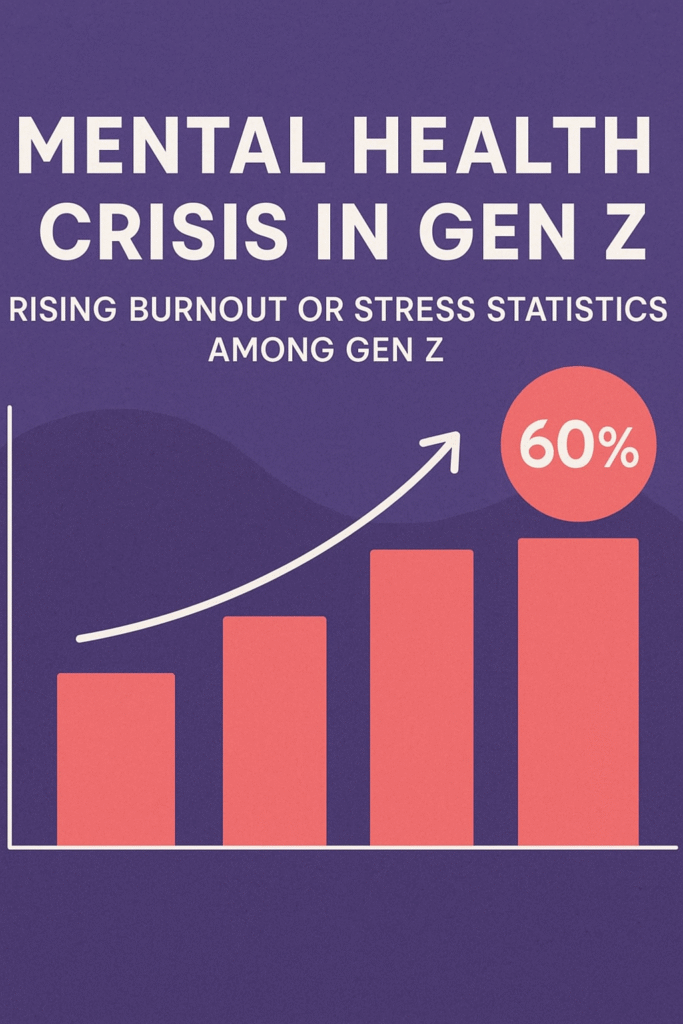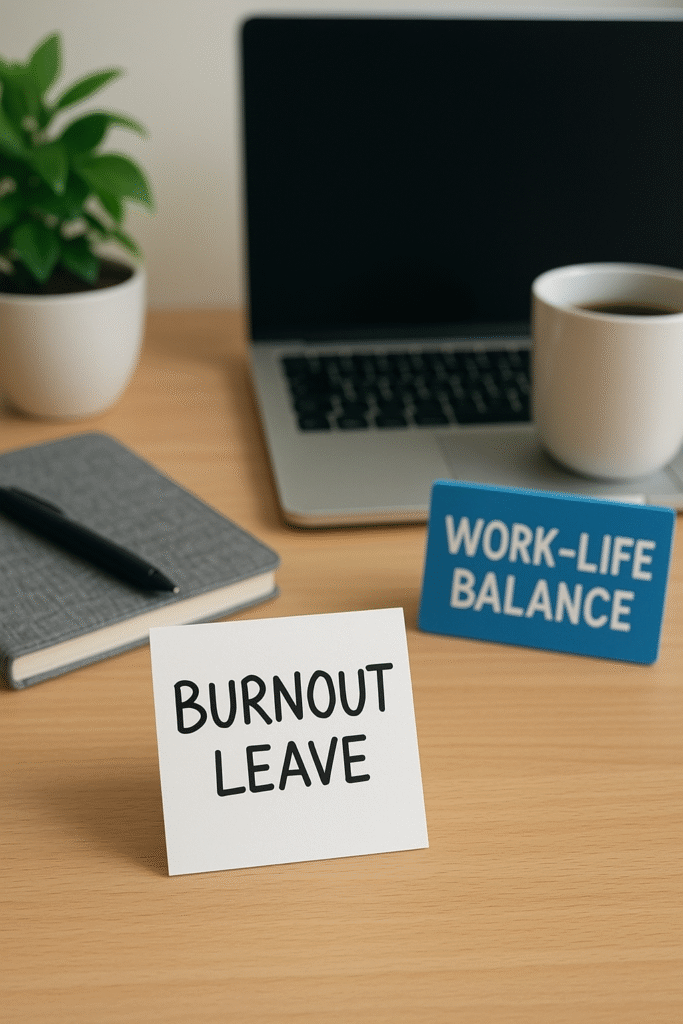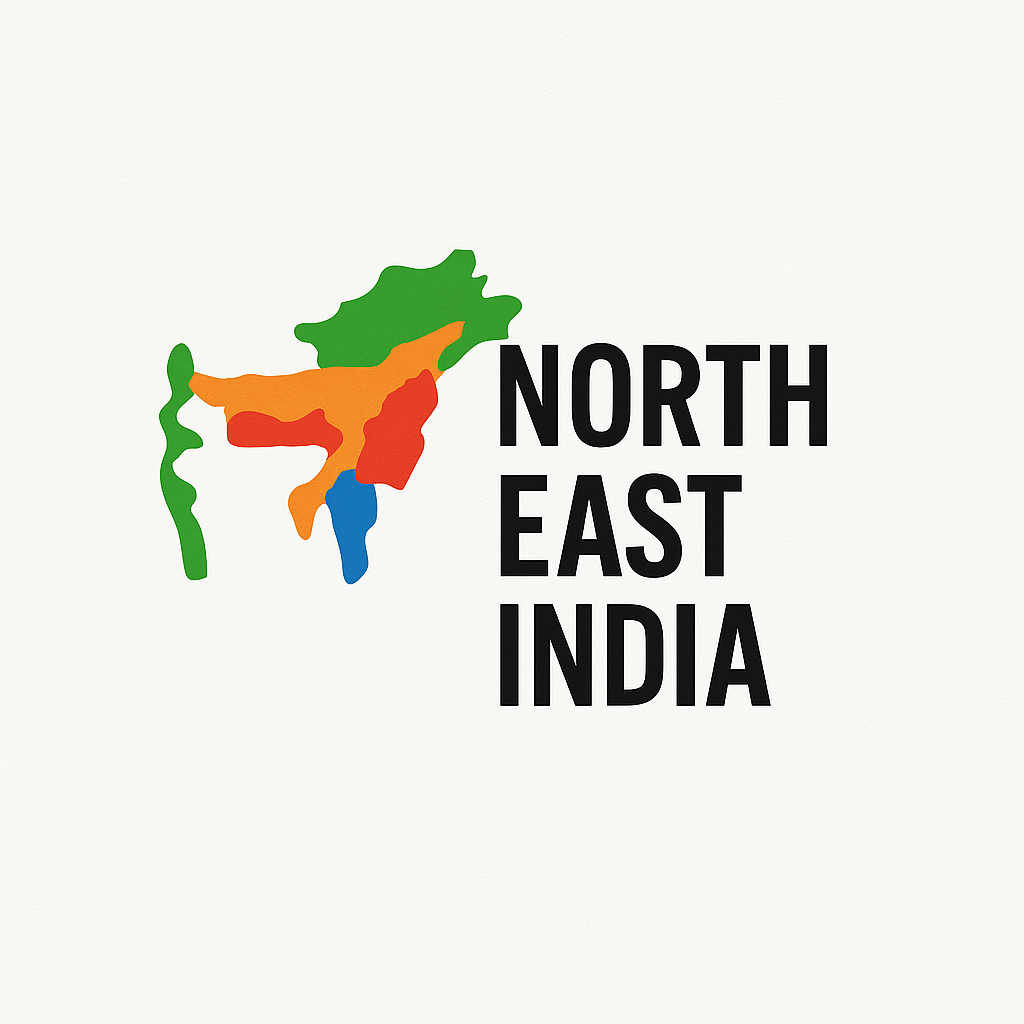
Introduction: The Gen Z Burnout Nobody Saw Coming
Gen Z, often described as the most tech-savvy and ambitious generation, is silently crumbling under an immense burden — burnout. While older generations label them as “lazy” or “overly sensitive,” the truth is far more complex. Gen Z burnout is emerging as a silent health crisis fueled by a toxic cocktail of workplace stress, hustle culture, academic pressure, and digital overload.
According to a Deloitte survey, over 46% of Gen Zs report feeling stressed or anxious most of the time. This isn’t just about a few bad days. This is a generation-wide epidemic that threatens mental, emotional, and even physical well-being.
Who is Gen Z?
Before diving deeper, it’s important to define Gen Z — those born roughly between 1997 and 2012. They’re digital natives, growing up in a world of constant connectivity, online comparison, and unprecedented societal expectations. They are also stepping into a world rocked by climate anxiety, political unrest, economic instability, and a never-ending pressure to “do more.”
🧠 Gen Z Mindset and Relationships: Unveiling the Psychology of a Connected Generation (2025)
What is Burnout?
Burnout is more than just being tired. The World Health Organization defines it as a syndrome resulting from chronic workplace stress that hasn’t been successfully managed. It’s characterized by:
- Exhaustion: Constant mental, emotional, or physical fatigue
- Cynicism: Growing detachment or negativity toward work/school
- Reduced Efficacy: Feeling like your efforts no longer matter
Burnout affects productivity, relationships, motivation, and health. And Gen Z is facing it younger and faster than any generation before.
https://www.who.int/mental_health/evidence/burn-out/en/
Hustle Culture: Glorifying Overwork
One major culprit behind Gen Z burnout is the glorification of hustle culture. The idea that if you’re not grinding, you’re falling behind. That success only comes through sleepless nights, constant side hustles, and sacrificing self-care. The constant glorification of 24/7 productivity is a major contributor to Gen Z burnout, both in school and the workplace.
“Rise and grind” has turned into “burn and crash.”
Gen Z often works multiple jobs or juggles school and internships — not for passion, but survival. Social media further amplifies this pressure by showcasing highlight reels of entrepreneurs, influencers, and startup founders who seem to make millions overnight.
But behind those curated posts lies an often-ignored truth — burnout is the price many pay for validation.

Workplace Stress and Unrealistic Expectations
Even as they enter the workforce, Gen Z is met with unrealistic job expectations:
- Low pay with high demands
- Long hours without recognition
- Lack of work-life balance
- Toxic managers or rigid corporate hierarchies
- Constant performance evaluations
Many entry-level roles today come with unrealistic expectations, which further accelerate Gen Z burnout across industries.
Many young employees feel disposable, with 58% of Gen Z workers reporting mental health issues in the workplace (McKinsey, 2023). Unlike older generations, they are more likely to speak up or quit jobs due to stress — yet the systemic issues remain unaddressed.
The Social Media Paradox
Gen Z’s relationship with social media is both empowering and damaging.
Comparison Culture:
- Scrolling through filtered lives of others leads to imposter syndrome, low self-esteem, and feelings of inadequacy.
- Whether it’s career success, physical appearance, or lifestyle — comparison is constant and crippling.
The Fear of Missing Out (FOMO):
- FOMO drives users to stay constantly connected, even at the cost of sleep and peace of mind.
- Notifications, messages, and updates never stop — neither does the mental toll.
Doomscrolling and Anxiety:
- Bad news spreads faster than ever — wars, climate change, AI taking over jobs.
- Gen Z, more than any group, feels emotionally drained by constant digital negativity.
Academic and Career Pressure
Gen Z faces intense academic pressure from a younger age. The competition to get into top universities, land elite internships, or build impressive resumes starts early. And it doesn’t stop after graduation.
With the rise of automation and AI, many fear becoming obsolete unless they constantly upskill. The result? Students who are chronically sleep-deprived, anxious, and overwhelmed.
Add to that:
- Online learning fatigue during COVID
- Parents with high expectations
- Rising tuition costs and student debt
Burnout begins not at work, but in classrooms and coaching centers.
The Dark Legacy of Witch Hunting: History, Impact & the Fight Against Superstition
https://www2.deloitte.com/global/en/pages/about-deloitte/articles/genzmillennialsurvey.html
Mental Health Stigma and Lack of Support
While Gen Z is more open about mental health, societal and familial stigma still exists, especially in countries like India. Phrases like “It’s all in your head” or “You’re just lazy” prevent many from seeking help.
Even those who want therapy may find:
- High costs of treatment
- Long wait times
- Lack of culturally sensitive counselors
- Judgment from peers or elders
This neglect turns temporary stress into chronic depression and anxiety — further spiraling into burnout.
The Role of Sleep, Diet & Lifestyle
Gen Z is also sleeping less and eating worse than ever:
- Blue light from screens disrupts melatonin and circadian rhythms.
- Caffeine and energy drinks replace real rest.
- Junk food is the go-to comfort during all-nighters or binge-watching sessions.
- Exercise is often neglected due to time or lack of motivation.
Over time, this lifestyle erodes both mental and physical health, reinforcing the cycle of burnout.
Real Stories That Reflect a Generation in Crisis
Aditi, 22, India – “I Was Always Exhausted, Not Lazy”
A top-performing engineering student, Aditi found herself drowning in online classes, competitive coding, and parental expectations. She recalls sleeping only four hours a night, eating junk between Zoom lectures, and crying quietly in the bathroom.
“Everyone thought I was lazy because I stopped topping. I wasn’t lazy. I was just… burnt out.”
Her story is echoed across campuses and offices in India and around the world.

Josh, 24, USA – “Burnout Made Me Quit My Dream Job”
Josh landed a marketing job at a fast-paced startup right after graduation. But within eight months, he experienced migraines, anxiety attacks, and insomnia. His managers praised “hustle,” but never asked about his health.
“I walked away from my dream role to protect my mental health. It felt like failure… but it saved me.”
These stories are not outliers. They are symptoms of a cultural failure to protect young minds.
https://www.mckinsey.com/industries/healthcare/our-insights/understanding-gen-z
How Gen Z is Coping – and Often Struggling
With Gen Z burnout reaching epidemic levels, many young people are turning to coping mechanisms…
Many Gen Z individuals are turning to DIY solutions — some helpful, others harmful.
1. Positive Coping Mechanisms
- Therapy & Counseling: Teletherapy platforms like BetterHelp, MindPeers, and Talkspace are gaining traction.
- Journaling & Mindfulness: Guided meditation apps like Calm and Headspace are popular among this generation.
- Digital Detoxes: More youth are taking intentional breaks from social media, especially Instagram and TikTok.
- Community Support: Online forums, Reddit communities, and Gen Z mental health influencers offer validation and advice.
2. Harmful Shortcuts
- Substance Use: Increase in alcohol, marijuana, or pill use as a coping mechanism.
- Isolation: Many withdraw from social circles out of guilt or exhaustion.
- Toxic Productivity: Even self-care becomes another task on the checklist, increasing guilt when skipped.
Burnout among Gen Z needs more than just coping hacks — it needs structural support.
Elon Musk Biography 2025: From Childhood Genius to Tech Billionaire & Space Visionary
What Can Parents, Employers & Educators Do?
Burnout isn’t just a Gen Z problem — it’s a societal one. And older generations play a critical role in fixing it.
1. Parents Must Relearn Support
- Ditch “when I was your age…” comparisons
- Listen without judgment
- Encourage mental health days as seriously as sick leaves
- Understand that your child’s worth isn’t tied to grades or salary
2. Employers Must Build Human-Centric Workplaces
- Promote mental health awareness
- Offer flexible hours, hybrid options, and real breaks
- Create a culture where asking for help isn’t punished
- Provide access to mental wellness programs and burnout leave
3. Educators Must De-Intensify Pressure
- Limit rote learning and meaningless testing
- Talk openly about anxiety, failure, and burnout
- Include emotional intelligence and mindfulness in curriculum
- Encourage creativity and purpose, not just GPA
Long-Term Solutions: Breaking the Cycle
1. Normalize Seeking Help
Gen Z must know that therapy is not weakness — it’s wisdom. Schools, colleges, and workplaces should provide subsidized or free counseling, and ensure it’s accessible to all.
2. Redefine Success
The idea that success = hustle must die. Let’s celebrate:
- Consistency over intensity
- Emotional intelligence over credentials
- Health over hustle
3. Enforce Digital Boundaries
Tech is powerful — but addictive. Gen Z should be educated about:
- Screen time limits
- Notification hygiene
- Social media breaks without guilt
Apps like Forest or Freedom help block distractions, while others like Notion help organize time better.
Burnout is a Health Crisis – Not a Weakness
Burnout among Gen Z is a public health issue, not a personal failure. It’s a sign of systems that value output over well-being.
Just like pollution or pandemics, this silent epidemic requires mass awareness, empathy, and long-term change.
The Bright Side: Why Gen Z Can Lead the Healing
Ironically, the generation most affected by burnout may also be the one to redefine how we treat mental health.
They:
- Speak openly about emotions
- Value work-life balance
- Demand change from institutions
- Innovate around mental wellness (startups, apps, influencers)
The same fire that drives Gen Z to burnout could be the one that burns outdated systems and builds better ones.

Final Thoughts
Gen Z burnout is not just a fleeting issue — it’s a silent health crisis that’s rewriting how we view productivity, ambition, and self-worth. The path forward lies in recognition, reform, and radical empathy.
Whether you’re a Gen Z yourself, a parent, or an employer — your role matters in shaping a world where thriving replaces surviving.
🧠 Jeff Bezos Biography 2025: Amazon Founder’s Inspiring Journey, Failures & Leadership Insights
🌄 Plan Your Trip to Northeast India with Us!
Want to explore the untouched beauty of the Northeast?
From the misty mountains of Mizoram to the living root bridges of Meghalaya, and the cultural heart of Assam — we’ve got you covered!
✅ Personalized Travel Itinerary
✅ Local Guides & 24/7 Support
✅ Best Hotel & Homestay Options
✅ Group Tours & Solo Packages
✅ Affordable, Safe & Hassle-Free
📩 Contact us today and let’s start planning your dream trip!
📞 Call/WhatsApp: 8453980642
🧳 Book your Northeast adventure now – Discover places you’ve only dreamed of!
